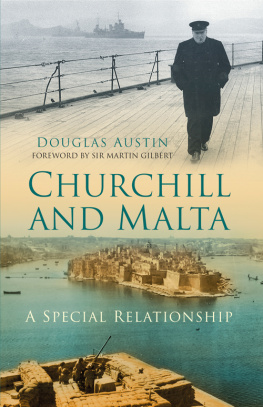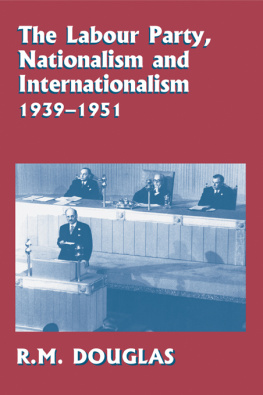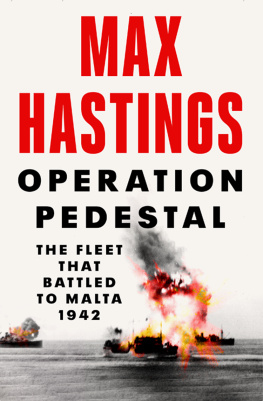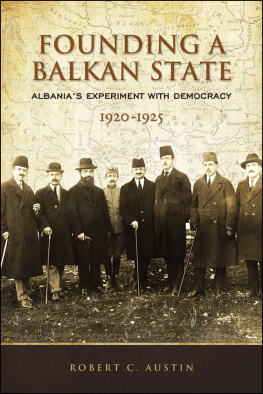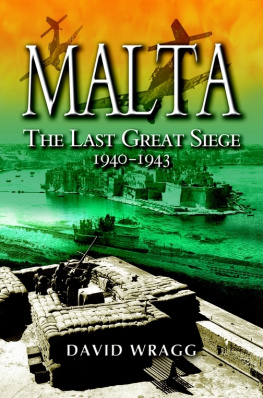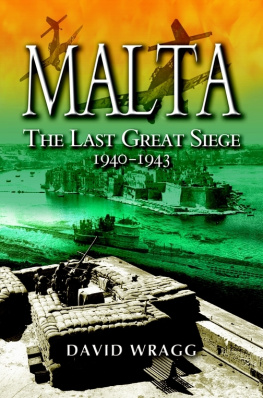Malta and British Strategic Policy
19251943
CASS SERIES: MILITARY HISTORY AND POLICY
Series Editors: John Gooch and Brian Holden Reid ISSN: 14658488
This series will publish studies on historical and contemporary aspects of land power, spanning the period from the eighteenth century to the present day, and will include national, international and comparative studies. From time to time, the series will publish edited collections of essays and classics.
1. Allenby and British Strategy in the Middle East, 19171919
Matthew Hughes
2. Alfred von Schlieffen's Military Writings
Robert Foley (ed. and trans.)
3. The British Defence of Egypt 19351940: Conflict and Crisis in the Eastern Mediterranean
Stephen Morewood
4. The Japanese and British Commonwealth Armies at War, 19411945
Tim Moreman
5. Training, Tactics and Leadership in the Confederate Army of Tennessee: Seeds of Failure
Andrew Haughton
6. Military Training in the British Army, 19401944: From Dunkirk to D-Day
Tim Harrison-Place
7. The Boer War: Direction, Experience and Image
John Gooch (ed.)
8. Caporetto 1917: Victory or Defeat?
Mario Morselli
9. Postwar Counterinsurgency and the SAS, 19451952: A Special Type of Warfare
Tim Jones
10. The British General Staff: Reform and Innovation, c. 18901939
David French and Brian Holden Reid (eds)
11. Writing the Great War: Sir James Edmonds and the Official Histories, 19151948
Andrew Green
12. Command and Control in Military Crisis: Devious Decisions
Harold Hiback
13. Malta and Bristish Strategic Policy, 19251943
Douglas Austin
Malta and British Strategic Policy
19251943
Douglas Austin
Foreword by David French
FRANK CASS
LONDON NEW YORK
First published 2004
by Frank Cass
11 New Fetter Lane, London EC4P 4EE
Simultaneously published in the USA and Canada
by Frank Cass
29 West 35th Street, New York, NY 1001
This edition published in the Taylor & Francis e-Library, 2005.
To purchase your own copy of this or any of Taylor & Francis or Routledge's collection of
thousands of eBooks please go to www.eBookstore.tandf.co.uk.
Frank Cass is an imprint of the Taylor & Francis Group
2004 Douglas Austin
British Library Cataloguing in Publication Data
Austin, Douglas
Malta and British strategic policy, 192543.(Cass series. Military history and
policy; 13)
1. World War, 19391945Malta 2. World War, 19391945Campaigns
Malta 3. Great BritainMilitary relationsMalta 4. MaltaMilitary relations
Great Britain 5. Great BritainMilitary policy 6. MaltaHistory 17981964 7.
Great BritainForeign relationsMediterranean Region 9. Great Britain
Foreign relations19101936 10. Great BritainForeign relations19361945
I. Title
945.8 5 03
Library of Congress Cataloging in Publication Data
Austin, Douglas, 1934
Malta and British strategic policy, 192543/Douglas Austin; forword by David
French.
p. cm. (Cass seriesmilitary history and policy; ISSN 14658488)
Based on author's doctoral thesis (University of London).
Includes bibliographical references and index.
1. Great BritainHistory, Military20th century. 2. Great BritainDefenses
History20th century. 3. MaltaForeign relationsGreat Britain. 4. Great
BritainForeign relationsMalta. 5. BritishMaltaHistory20th century. 6.
World War, 19391945Great Britain. 7. Great BritainMilitary policy. 8.
World War, 19391945Malta. I. Title. II. Series.
DA566.5.A97 2004
355 .03354585 09041dc22
ISBN 0-203-32829-9 Master e-book ISBN
ISBN 0-7146-5545-7 (Print Edition)
ISSN 1465-8488
All rights reserved. No part of this book may be reprinted or
reproduced or utilised in any form or by any electronic, mechanical,
or other means, now known or hereafter invented, including
photocopying and recording, or in any information storage or
retrieval system, without permission in writing from the publishers.
To the memory of my parents
Contents
Illustrations
Tables
Series Editor's Preface
INTRODUCTION
The role played by the island of Malta, and more particularly by the aircraft, ships and submarines based there, in the Mediterranean war has been and remains a controversial one. Historians have divided sharply on the impact made by the operations of those forces on Rommel's campaign in North Africa, some believing them to have made a crucial contribution to the Axis defeat and others claiming that their role was secondary at best. The controversy has been a lively one in Italy too, where the failure to attempt Operation C3 and knock the island out of the war has generated a considerable literature, as has the question of whether the interdiction of supplies to North Africa was or was not a central fact in explaining the outcome of the desert war. In a related field, Malta has by contrast been conspicuous largely by its absence. In all the work which has now been published on British defence policy in the inter-war years, Malta has figured littleand then all too often simply as an example of neglect, justifiable or not according to the outlook of the author.
The pre-history of Malta before 1939, as Douglas Austin shows in this book, goes back at least to 1923. Within eight years, the authorities envisaged the possibility of a massed air attack by Italy's Regia Aeronautica whose strength and capability they considerably over-estimated. In the intense competition for limited resources in the early 1930s, the island had to compete with Singapore but although it was accorded a low priority, it was by no means ignored altogether. Its misfortune, as will become apparent in the pages that follow, was to fall between two stools as Great Britain rearmed for war against Germany and sought to defend its Far eastern interests against Japan. Although it was not, as Lord Chatfield acknowledge, of critical importance the Mediterranean crisis of 1935 and its aftermath raised important considerations about its potential role in war and particularly about its function in relation to the defence of Egypt. Without the understanding of the defence debates which both preceded and followed the Abyssinian war and which is provided here it is impossible fairly to judge whether myopia, distraction or simply the more pressing nature of otherdifficulties best explains the attitude taken by the authorities to the island at the time.
Malta's war-time history is closely bound up with Winston Churchill, who made his first important intervention when he was instrumental in rejecting the First Sea Lord's proposal in June 1940 to withdraw the Mediterranean fleet to Gibraltar. Its importance as an active piece on the strategic chessboard came when Marshal Graziani invaded Egypt in September 1940, when it immediately presented an ideal base from which to interdict Italian and later Axis supply lines. The sharp differences between the Royal Navy and the Royal Air Force in the months and years which followed about which service should do what and whether either was bearing more than its share of the burden provide an important insight into the difficulties of inter-service collaboration. The disputes on the Axis side, if briefer, were more fundamental and perhaps in the long run more important as the Germans made it plain that they did not want to occupy Malta while the Italians concluded that they could not do so. Douglas Austin's conclusion that, had Malta been in Italian hands by the autumn of 1942, a better supplied Axis force in North Africa might have fought the 8th Army to a standstill is a thought-provoking example of the illumination that modest but well-founded counterfactual history can provide.


